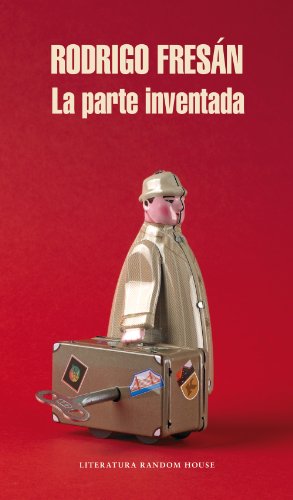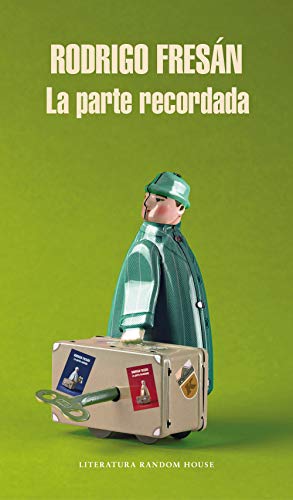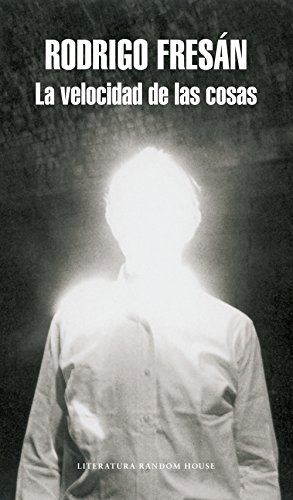Writing as a subject of study to unravel the balance between creativity and will, between method and unbridled imagination. The work of the Argentine Rodrigo Fresan it is at times a spiral of centripetal force that magnetizes us towards the core of what it means to give ourselves to narrating life. Always with that subjective component that can be oriented towards fiction but that also points to reflection; deep thought or even wandering.
It will be that literature is everything, even the emptiness of the blank page when it is predicted that no new pages will arrive. Because the profession of writer has that open-ended point where whoever writes to us never knows when they will stop creating life. Except for the part that is up to Rodrigo Fresán, who in his trilogy addresses his vision of writing with an aspect of finished theory.
From Stephen King from his most particular vision in «While i write" until Philip Roth with his most choral idea in «The trade«. Who else who less among many writers tries to synthesize what writing means. Fresán focuses everything on an analytical trilogy of the narrative between fiction and reality, under his perspective committed to the unraveling of the last of the reasons for writing.
Top 3 recommended books by Rodrigo Fresán
The invented part
Nothing better to start writing about the profession of writing than to openly address that clearly differentiating part. From the form to the bottom, the narrative is an invention. It cannot be considered otherwise before the subjectivity of the world ...
The invented part seeks the answer to that question (how the mind of a writer works) by entering the mind of a writer trying to write his own story. Or to rewrite it in his own way. The story of someone who had some success a few years ago, in the last century and millennium, but who now feels that there is no place for him, neither in the literary world nor in the great world. And that - amidst the accelerated particles of lyrics by Francis Scott Fitzgerald, music by Pink Floyd, an old wind-up toy and the landscape of childhood beaches - he thinks the time has come to tell his version of the matter ...
«Over time, you will be asked, over and over again, "How do you come up with those ideas you write?" An almost obligatory question that is answered - to which he will always answer - with eternal vagueness or with certainties that are forgotten the next day. And you will wonder how it is that you are never asked something much more important or, at least, more interesting. Why is he never asked "How did you come up with the idea of being a writer?".»
The remembered part
Yes, all literature is impregnated with memories, with learning, with experiences. In the most willful intention of objective creation, the vision of a world adjusted to the circumstances that make us up, with its memories, just as we are, invades us. How does a writer remember? The remembered part is the third and last volume in Rodrigo Fresán's trilogy, a key work in Spanish literature of our time.
And how does this Writer remember that he was once a promising Nextwriter and is now just a former Writer. Someone who can no longer write, but who cannot stop reading and rereading himself and evoking how he once was and how he will never be. Someone thinking that «To invent was to remember forward. To dream was to remember up or down. To remember was to invent backwards.
And here comes a reverse wind-up toy again and the ghost of electricity; the lofty and stormy Penelope and her lost son, 2001: A Space Odyssey y Blade Runner; the absent Pertusato, Nicolasito and the ubiquitous IKEA; the dead Colma and the late Zzyzx and the late Nothing and the immortal Songs Sad; the unrealistic Vladimir Nabokov and the surreal Karma family; Wish you Were Here ringing on (on) mobile phones (izers) and the invitation for Dracula to come in; the disturbed Uncle Hey Walrus and a couple of model but not very model parents; The Beatles and The beatles; a non-existent country of origin and a city on fire; an unforgettable night that one would like to rewrite; and so many other accelerated particles and loose fragments and interconnected cells in search of a web that contains them and gives them order and meaning.
With The remembered part, Rodrigo Fresán closes the triptych whose theme is the three parts that intervene in the writing of fictitious lives and in the narration of real works. Parts that determine the way in which the head of a creator works who no longer believes in almost anything except in those stories in which it is advisable to keep the past in mind, because the future depends on it. Those stories to never forget but remembering all the time that what they tell will always be -voluntarily or involuntarily- modified by whoever remembers them after inventing and dreaming, here and there and everywhere.
The speed of things
The story as essential semblances of the paradoxes erected throughout history from the base of human contradictions ... Essays and theories about life, love, literature, progress, consumerism, society, Argentines. And death.
A man of letters on a ship to nowhere, a scholar of funeral rites, an impostor abducted by a literary legend, a party junkie, a long-suffering obituary writer, a very ugly girl willing to find evidence of intelligent life in other planets, a recently dead book dealer, a loser obsessed with 2001: A Space Odyssey, an invader of alien pools, a Nazi hierarch fascinated by a Jewish writer, a hunter of the whales of his past, a hotel collector, a Nameless bone hunter, and perhaps a happy prisoner of a mysterious foundation destined to perpetuate the nearly extinct art of storytelling. Fourteen stories that hide the secret plot of a novel to put together.



